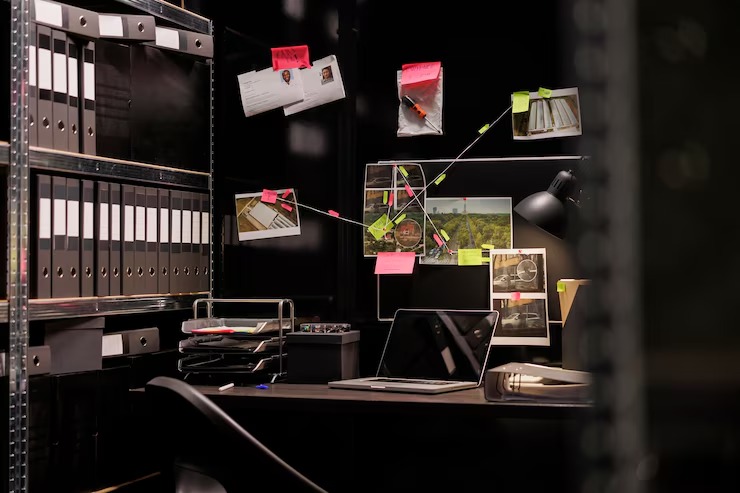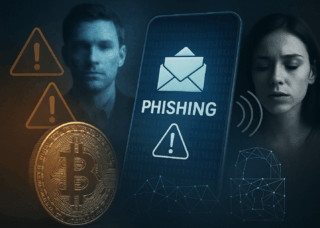Whether you’re dealing with a personal issue, corporate investigation, or a legal matter, choosing the right private investigator can make all the difference. But what exactly makes a PI effective?
What traits separate the great from the average? At Privin, we understand that the best investigators aren’t just skilled – they embody a unique combination of characteristics that allow them to navigate the most complex and sensitive cases.
Whether you are looking to hire a private investigator or want to know the key traits because you are interested in becoming one, this article uncover the essential traits of successful private investigators, so you know what to look for when hiring one!
If you are

10 Key Traits of a Successful Private Investigator
1. Attention to Detail
One of the most critical traits of a private investigator is attention to detail. Investigations often hinge on tiny clues that others might overlook, such as discrepancies in a statement, patterns in behavior, or small pieces of evidence that seem insignificant at first glance.
A PI’s ability to notice these details can make the difference between solving a case and hitting a dead end. Whether it’s surveillance, reviewing documents, or analyzing digital footprints, the best investigators are those who leave no stone unturned.
2. Patience and Perseverance
Private investigation is rarely fast-paced; cases can drag on for weeks or even months without a clear lead. This is why patience and perseverance are essential traits for any private investigator. Real-world investigations require long hours of waiting, analyzing, and persistence.
For example, in surveillance cases, investigators may need to stake out a location for extended periods without making significant findings. In these instances, giving up or rushing through a job can mean missing out on the very information that could crack the case. Patience allows investigators to wait for the right moment to act, while perseverance ensures they keep pushing forward even when the path isn’t clear.
3. Strong Analytical Skills
Successful private investigators must possess strong analytical skills. These skills allow PIs to connect the dots between seemingly unrelated pieces of information, forming a complete picture of the case at hand.
A good investigator analyzes data, interviews, and evidence methodically, drawing connections others might miss.
Investigators often use various tools like forensic analysis software or databases to uncover hidden data or patterns.
Research shows that cases involving analytical technology had a higher success rate in locating missing persons. Being able to sift through vast amounts of data and identify trends or anomalies is a key skill that helps investigators stay a step ahead.
4. Discretion and Integrity
Private investigators deal with sensitive, sometimes highly personal, information. Discretion and integrity are non-negotiable traits for any PI. Clients need to know that their information will be handled with the utmost care and confidentiality. Whether it’s working undercover, tracking someone’s movements, or handling private documents, investigators must respect privacy and operate within the law.
Integrity is also essential. A good PI works ethically, avoiding illegal practices or unethical behavior. At Privin, we pride ourselves on upholding the highest standards of discretion and integrity. Our clients trust us to protect their privacy while delivering results, and that trust is built on years of ethical practice.
To know more about what to expect during a Private investigation, check our detailed guide.
5. Communication Skills
While much of a private investigator’s work happens behind the scenes, communication skills are critical to their success. Investigators need to clearly and accurately communicate their findings to clients, law enforcement, and even the court system. Writing detailed reports, documenting evidence, and articulating observations require strong written and verbal communication.
Additionally, during interviews or questioning, PIs must know how to ask the right questions to gather valuable information. This goes hand-in-hand with their ability to remain tactful and professional, especially when dealing with sensitive topics.
6. Physical and Mental Resilience
The work of a private investigator can be both physically and mentally demanding. Physical and mental resilience are traits that help investigators endure the long hours and often high-stress situations that come with the job. Surveillance, for example, can involve spending hours in uncomfortable conditions, and mental resilience is required to stay alert and focused.
Statistics show that burnout is common among professionals in high-stress fields, including private investigation, with PIs reporting they’ve experienced job-related stress. This makes resilience an essential trait for maintaining both personal well-being and professional performance.
7. Adaptability and Resourcefulness
Investigations often take unexpected turns, and private investigators must be prepared to navigate those challenges. Adaptability and resourcefulness allow PIs to think on their feet and adjust their approach when new information arises or when roadblocks emerge.
A successful PI needs to remain flexible, finding innovative solutions to overcome obstacles. Whether it’s dealing with uncooperative witnesses, adjusting to a change in surveillance conditions, or accessing new information, adaptability is crucial to successfully concluding an investigation.
8. Tech Savviness
According to the Pew Research Center, 89% of U.S. adults are online, which underscores the importance of tech-savvy investigators who can navigate the digital landscape. Private investigators rely heavily on technology to conduct investigations efficiently. Tech savviness allows PIs to leverage tools such as GPS tracking, surveillance cameras, and online databases to gather and analyze data.
Many investigations now require an understanding of digital forensics, data encryption, and even social media tracking. The use of technology increases the chances of finding valuable evidence and solving cases more quickly.
9. Empathy and Compassion
Investigators often work with clients who are going through challenging situations, such as infidelity suspicions, custody battles, or financial disputes. Demonstrating empathy and compassion helps build rapport and trust with clients, who need to feel understood and supported during stressful times.
A PI who can balance professionalism with empathy is more likely to provide a positive client experience. Being able to listen and identify emotional distress can also help the investigator gain deeper insights into the case, leading to better outcomes.
10. Professionalism and Ethical Conduct
Finally, professionalism and ethical conduct are the cornerstones of private investigation. Successful investigators adhere to the highest ethical standards, conducting themselves with honesty and integrity at all times.
Whether dealing with clients, witnesses, or law enforcement, professionalism helps build credibility and trust. Investigators who operate ethically are not only more respected but also more likely to succeed in court cases, as their findings are less likely to be questioned or dismissed.
Read more about hiring a Private investigator here.
Read more about what to expect during a Private investigation here.
Conclusion
For a private investigation to be successful, your PI needs to have the right traits. From attention to detail to resilience, these qualities make all the difference in gathering the evidence needed to solve complex cases.
When choosing a PI, it’s important to ensure they exhibit these traits, as they directly impact the outcome of your case. If you are looking to work with a PI, consider the professionals at Privin; we take pride in hiring investigators who possess the best skills and qualities to handle any investigation. Contact us for a free consultation to discuss your specific needs and learn how we can assist you in achieving your investigative goals.
Key Traits of Effective Private Investigators
1. Why is attention to detail crucial for private investigators?
Attention to detail is vital for private investigators as small, often overlooked clues can be pivotal in solving cases. Detecting discrepancies in statements or identifying patterns in behavior can lead to breakthroughs.
2. How does patience contribute to a private investigator’s success?
Patience allows private investigators to endure prolonged surveillance or lengthy investigations without yielding. This trait ensures they remain diligent, even when immediate results aren’t apparent, leading to thorough and effective case resolutions.
3. Why are strong analytical skills important for private investigators?
Strong analytical skills enable private investigators to connect disparate pieces of information, forming a cohesive understanding of complex situations. This ability is essential for uncovering hidden details and solving intricate cases.
4. How does discretion benefit private investigators?
Discretion is paramount for private investigators to maintain confidentiality and protect sensitive information. Their ability to handle cases with tact and professionalism ensures trust and safeguards the privacy of all parties involved.
5. What role does adaptability play in a private investigator’s work?
Adaptability allows private investigators to adjust their strategies in response to evolving situations. Whether dealing with unexpected challenges or new information, being flexible ensures they remain effective and efficient in their investigations.






